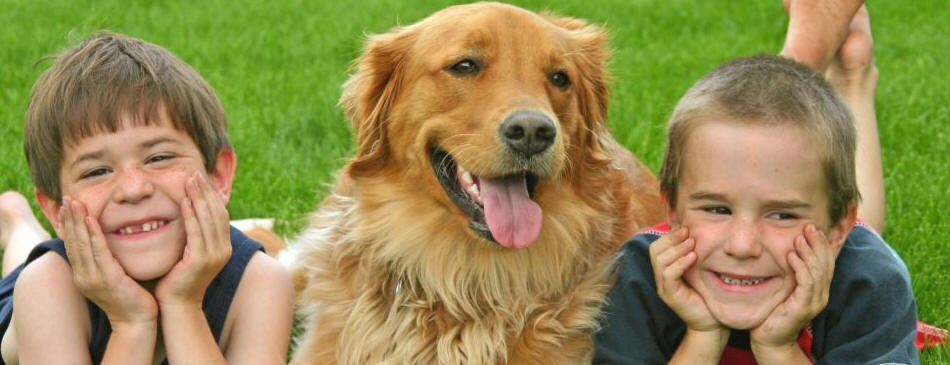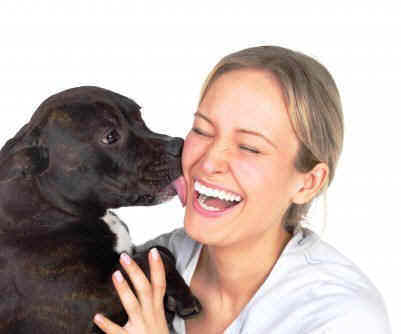Coping with the Loss of a Pet
As dog owners and people who care deeply for animals and
wildlife, we wanted our Dog Encyclopedia to be a website that could
empower pet owners to create the most positive, loving
environment for their dogs. Dog Encyclopedia realizes that owning a
dog is like adding a new member to your family.
The death of a pet is incredibly devastating. Losing a beloved
canine companion is one of the most difficult events a dog owner
goes through.
What You Can Expect to Feel
1.Different people experience grief in different ways. Besides your
sorrow and loss, you may also experience the following emotions:
Guilt may occur if you feel responsible for your pet's death-the "if
only I had been more careful" syndrome. It is pointless and often
erroneous to burden yourself with guilt for the accident or illness
that claimed your pet's life, and only makes it more difficult to
resolve your grief.
2. Denial makes it difficult to accept that your pet is really gone.
It's hard to imagine that your pet won't greet you when you come
home, or that it doesn't need its evening meal. Some pet owners
carry this to extremes, and fear their pet is still alive and
suffering somewhere. Others find it hard to get a new pet for fear
of being "disloyal" to the old.
3. Anger may be directed at the illness that killed your pet, the
driver of the speeding car, the veterinarian who "failed" to save
its life. Sometimes it is justified, but when carried to extremes,
it distracts you from the important task of resolving your grief.
4. Depression is a natural consequence of grief, but can leave you
powerless to cope with your feelings. Extreme depression robs you of
motivation and energy, causing you to dwell upon your sorrow.
Dealing With Your Pain
The most important step you can take is to be honest about your
feelings. Don't deny your pain, or your feelings of anger and guilt.
Only by examining and coming to terms with your feelings can you
begin to work through them. You have a right to feel pain and grief!
Someone you loved has died, and you feel alone and bereaved. You
have a right to feel anger and guilt, as well. Acknowledge your
feelings first, then ask yourself whether the circumstances actually
justify them. Locking away grief doesn't make it go away. Express
it. Cry, scream, pound the floor, talk it out. Do what helps you the
most. Don't try to avoid grief by not thinking about your pet;
instead, reminisce about the good times. This will help you
understand what your pet's loss actually means to you. Some find it
helpful to express their feelings and memories in poems, stories, or
letters to the pet. Other strategies including rearranging your
schedule to fill in the times you would have spent with your pet;
preparing a memorial such as a photo collage; and talking to others
about your loss.
Euthanizing a Pet
Your veterinarian is the best judge of your pet's physical
condition; however, you are the best judge of the quality of your
pet's daily life. If a pet has a good appetite, responds to
attention, seeks its owner's company, and participates in play or
family life, many owners feel that this is not the time. However, if
a pet is in constant pain, undergoing difficult and stressful
treatments that aren't helping greatly, unresponsive to affection,
unaware of its surroundings, and uninterested in life, a caring pet
owner will probably choose to end the beloved companion's suffering.
Evaluate your pet's health honestly and unselfishly with your
veterinarian. Prolonging a pet's suffering in order to prevent your
own ultimately helps neither of you. Nothing can make this decision
an easy or painless one, but it is truly the final act of love that
you can make for your pet. Many dog owners feel that staying with
your pet during the procedure is the ultimate gesture of love and
comfort you can offer. Some feel relief and comfort themselves by
staying: They were able to see that their pet passed peacefully and
without pain, and that it was truly gone. For many, not witnessing
the death (and not seeing the body) makes it more difficult to
accept that the pet is really gone. However, this can be traumatic,
and you must ask yourself honestly whether you will be able to
handle it. Uncontrolled emotions and tears-though natural-are likely
to upset your pet.
Talking to Children
You are the best judge of how much information your children can
handle about death and the loss of their pet. Don't underestimate
them, however. You may find that, by being honest with them about
your pet's loss, you may be able to address some fears and
misperceptions they have about death. Honesty is important. If you
say the pet was "put to sleep," make sure your children understand
the difference between death and ordinary sleep. Never say the pet
"went away," or your child may wonder what he or she did to make it
leave, and wait in anguish for its return. That also makes it harder
for a child to accept a new pet. Make it clear that the pet will not
come back, but that it is happy and free of pain. Never assume a
child is too young or too old to grieve. Never criticize a child for
tears, or tell them to "be strong" or not to feel sad. Be honest
about your own sorrow; don't try to hide it, or children may feel
required to hide their grief as well. Discuss the issue with the
entire family, and give everyone a chance to work through their
grief at their own pace.
Getting a New Pet
One needs time to work through grief and loss before attempting to
build a relationship with a new pet. If your emotions are still in
turmoil, you may resent a new pet for trying to "take the place" of
the old-for what you really want is your old pet back. Children in
particular may feel that loving a new pet is "disloyal" to the
previous pet. When you do get a new pet, avoid getting a "lookalike"
pet, which makes comparisons all the more likely. Don't expect your
new pet to be "just like" the one you lost, but allow it to develop
its own personality. Never give a new pet the same name or nickname
as the old. Avoid the temptation to compare the new pet to the old
one: It can be hard to remember that your beloved companion also
caused a few problems when it was young! A new pet should be
acquired because you are ready to move forward and build a new
relationship-rather than looking backward and mourning your loss.
When you are ready, select an animal with whom you can build another
long, loving relationship-because this is what having a pet is all
about.












